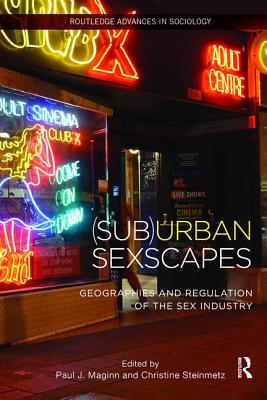
(Sub)Urban Sexscapes: Geographies and Regulation of the Sex Industry
| Quantity | Price | Discount |
|---|---|---|
| List Price | $54.95 |
$54.95
Book Information
| Publisher: | Routledge |
|---|---|
| Publish Date: | 04/28/2017 |
| Pages: | 286 |
| ISBN-13: | 9781138060258 |
| ISBN-10: | 1138060259 |
| Language: | English |
Full Description
(Sub)Urban Sexscapes brings together a collection of theoretically-informed and empirically rich case studies from internationally renowned and emerging scholars highlighting the contemporary and historical geographies and regulation of the commercial sex industry. Contributions in this edited volume examine the spatial and regulatory contours of the sex industry from a range of disciplinary perspectives-urban planning, urban geography, urban sociology, and, cultural and media studies-and geographical contexts-Australia, the UK, US and North Africa.
In overall terms, (Sub)urban Sexscapes highlights the mainstreaming of commercial sex premises-sex shops, brothels, strip clubs and queer spaces-and products-sex toys, erotic literature and pornography-now being commonplace in night time economy spaces, the high street, suburban shopping centres and the home. In addition, the aesthetics of commercial and alternative sexual practices-BDSM and pornography-permeate the (sub)urban landscape via billboards, newspapers and magazines, television, music videos and the Internet.
The role of sex, sexuality and commercialized sex, in contributing to the general character of our cities cannot be ignored. In short, there is a need for policy-makers to be realistic about the historical, contemporary and future presence of the sex industry. Ultimately, the regulation of the sex industry should be informed by evidence as opposed to moral panics.
*** Winner of the Planning Institute of Australia (WA) 2015 Award for Excellence in Cutting Edge Research and Teaching ***

